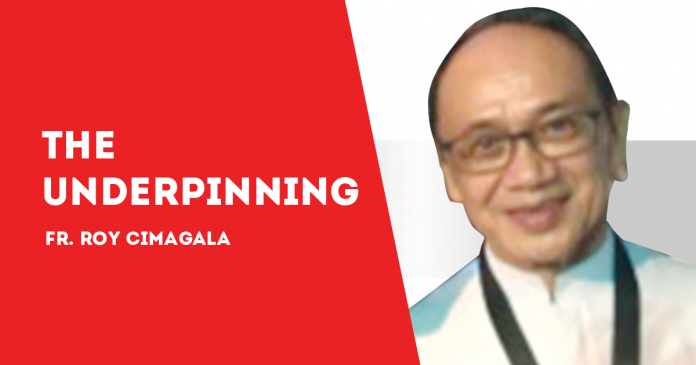
THERE is no doubt that cases of all kinds of addictions and obsessions are on the rise these day. They even affect little children. These cases are often referred to as mental illnesses or emotional or psychological disorders.
Aside from the usual addictions and obsessions of food, drinks and drugs, we now have addictions to pornography and other things that our new technologies offer, like games, social media, etc. Oh, how much time and energy are wasted in these addictions and obsession, not to mention the more important loss not only of one’s mind but also of his spiritual life!
This phenomenon gives us a new challenge to face and tackle. They should not be there only for us to lament and suffer. They are there to elicit in us an improvement in the way we handle ourselves and to spur in us a greater development toward human and Christian maturity and dominion over the things of this world.
Yes, we are being challenged to be masters of our fascinating creations, rather than to be their slaves. And to achieve that, it is quite clear that there has to be a tighter union between God our creator and us, his masterpiece creature.
This tighter union between God should redound to a greater coherence among the many dimensions and aspects of our life — the spiritual and material, the eternal and temporal, the soul and the body, etc. — all the way down to their finer points.
With respect to this challenge of addictions and obsessions, we have to learn how to make our biological constitution, or specifically, the management of our pleasure hormones, conform to the requirements of right reason, if not of our faith, hope and charity.
A point in the book, The Way, by Opus Dei founder, St. Josemaria Escriva, can give us an idea of how we need to humanize and Christianize our emotions, passions and the hormones that usually figure prominently in the development of addictions and obsessions.
It says, “You tell me, yes, that you want to. Very good. But do you want to as a miser longs for gold, as a mother loves her child, as a worldling craves for honors, or as a wretched sensualist seeks his pleasure? No? Then, you don’t want to.” (316)
What it is trying to say is that unless our love for God and for others, for doing good, for praying and for making sacrifices, etc., involves our emotions, passions, and the corresponding hormones, then that love cannot go far. It will be overtaken by the baser kinds of love of the flesh, of world and of many other things other than God, the source of all goodness.
The challenge now is how to make the love for God and others and all that is truly good involve not only our mind and our spiritual operations but also our heart and our bodily operations. If our piety is mainly spiritual without involving the body, that piety cannot last and cannot cope with the trials and difficulties we can meet in this world.
We have to learn how to spiritualize and supernaturalize our bodily functions involved in any act that is objectively good, starting with our relation God and then in our relation with others and the things of this world.
A lot of discipline and self-denial will obviously involved here, since the body will always be attracted only to what is material and bodily pleasurable. That’s the reason Christ told us that if we have to follow him, we need to deny ourselves and, in fact, to carry the cross, that is, his cross, the cross of all our sins and all the evils of this world so that that cross will lead to our resurrection and salvation in Christ.
This is the only way to battle addictions and obsessions. The medicine and other therapeutic and rehab measures, while helpful, can only do so much. It is God who can truly overcome our addictions and obsessions./PN





